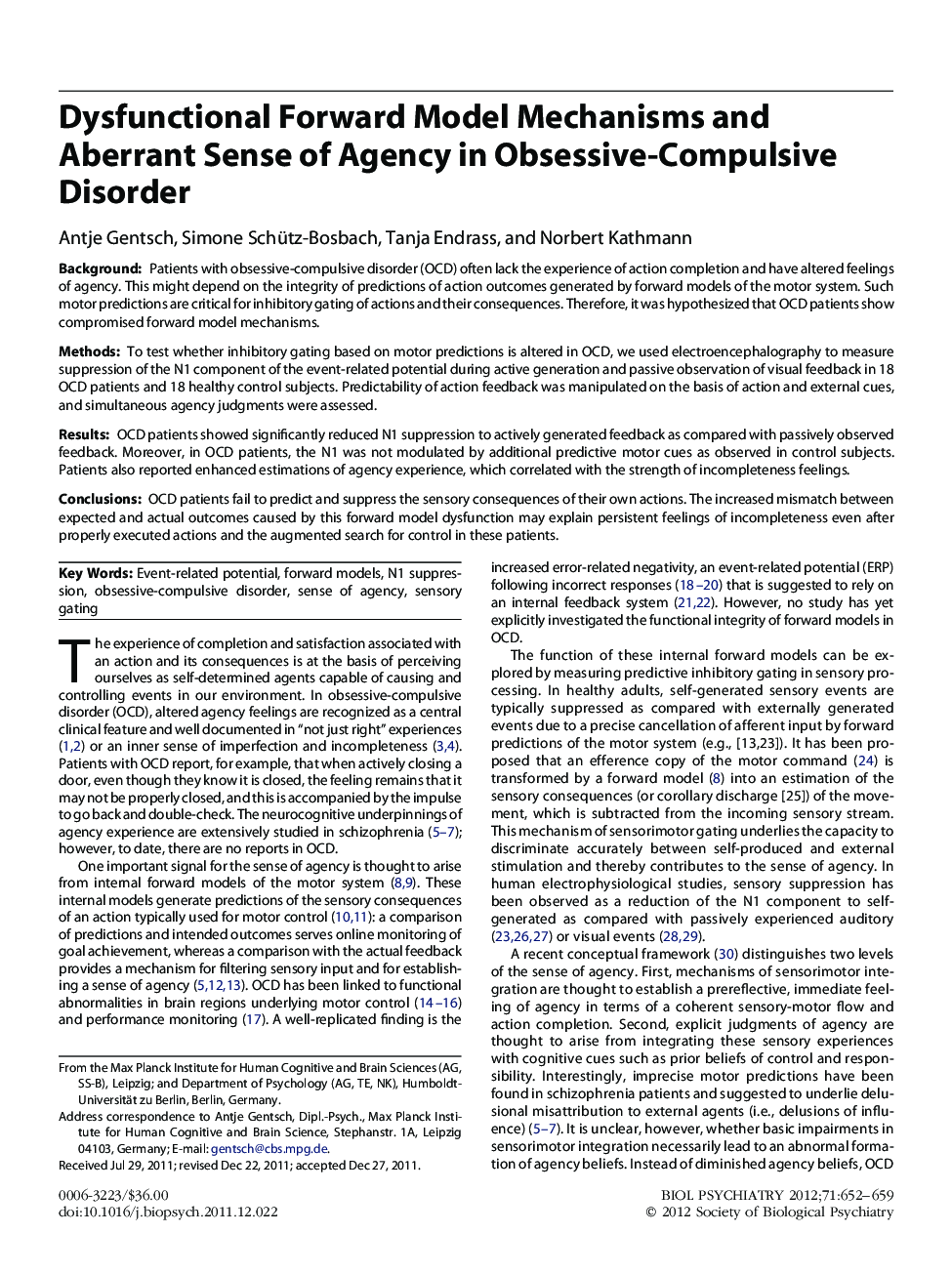| Article ID | Journal | Published Year | Pages | File Type |
|---|---|---|---|---|
| 6227857 | Biological Psychiatry | 2012 | 8 Pages |
BackgroundPatients with obsessive-compulsive disorder (OCD) often lack the experience of action completion and have altered feelings of agency. This might depend on the integrity of predictions of action outcomes generated by forward models of the motor system. Such motor predictions are critical for inhibitory gating of actions and their consequences. Therefore, it was hypothesized that OCD patients show compromised forward model mechanisms.MethodsTo test whether inhibitory gating based on motor predictions is altered in OCD, we used electroencephalography to measure suppression of the N1 component of the event-related potential during active generation and passive observation of visual feedback in 18 OCD patients and 18 healthy control subjects. Predictability of action feedback was manipulated on the basis of action and external cues, and simultaneous agency judgments were assessed.ResultsOCD patients showed significantly reduced N1 suppression to actively generated feedback as compared with passively observed feedback. Moreover, in OCD patients, the N1 was not modulated by additional predictive motor cues as observed in control subjects. Patients also reported enhanced estimations of agency experience, which correlated with the strength of incompleteness feelings.ConclusionsOCD patients fail to predict and suppress the sensory consequences of their own actions. The increased mismatch between expected and actual outcomes caused by this forward model dysfunction may explain persistent feelings of incompleteness even after properly executed actions and the augmented search for control in these patients.
